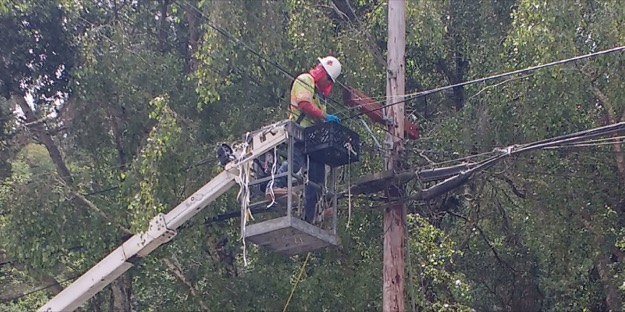PG&E cancels competitive dark fiber business plan

That didn’t take long.
Four days after informing the California Public Utilities Commission that it couldn’t reach agreement with a grab bag of protesting organisations, Pacific Gas and Electric threw in the towel. It’s ending its plan to become a competitive telecommunications company. It won’t put its extensive inventory of surplus dark fiber, and potentially other services, on the open market.
In its request to withdraw its application for certification as a competitive telecoms company, PG&E said the world has changed since it began the process more than a year ago…
… MoreGiven PG&E’s present circumstances, it is in the public interest that PG&E make current informed decisions in light of the new environment before investing significant resources in launching the new [competitive telecoms] business.

![By BrokenSphere (Own work) [CC BY-SA 3.0 (https://creativecommons.org/licenses/by-sa/3.0) or GFDL (https://www.gnu.org/copyleft/fdl.html)], via Wikimedia Commons](https://www.tellusventure.com/images/2017/7/pge_truck.jpg)
![By Slowking4 (Own work) [GFDL 1.2 (http://www.gnu.org/licenses/old-licenses/fdl-1.2.html)], via Wikimedia Commons](https://www.tellusventure.com/images/2018/1/open_internet_dont_tread_on_me.jpg)
![By Tim Williams from San Diego, CA, U.S.A. (Fires over the Hills) [CC BY 2.0 (https://creativecommons.org/licenses/by/2.0)], via Wikimedia Commons](https://www.tellusventure.com/images/2018/5/wildfire_powerline.jpg)

![Hydrogen Iodide at en.wikipedia [GFDL (https://www.gnu.org/copyleft/fdl.html) or CC-BY-SA-3.0 (https://creativecommons.org/licenses/by-sa/3.0/)], via Wikimedia Commons](https://www.tellusventure.com/images/2017/6/pge_transmission.jpg)
![By MarkScottAustinTX (Rachel's Birthday Swim Party) [CC BY-SA 2.0 (https://creativecommons.org/licenses/by-sa/2.0)], via Wikimedia Commons](https://www.tellusventure.com/images/2018/7/beer_pong.jpg)

![[[File:Jubilee Line tunnel (detraining during April 2008 power failure).jpg|Jubilee Line tunnel (detraining during April 2008 power failure)]]](https://www.tellusventure.com/images/2018/7/power_failure_in_tunnel.jpg)
